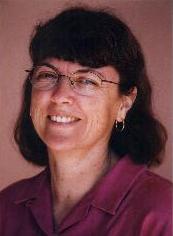Sagan's intent in his book is to present science as the only accurate source of "truth", not through analysis, but exhortation. And, "if the exhortation is to succeed," says Lewontin, "then the argument for the superiority of science and its method must be convincing, and not merely convincing, but must accord with its own demands...Unfortunately, the argument may not look as good to the unconvinced as it does to the believer."
"First, we are told [by Sagan] that science 'delivers the goods.' It certainly has, sometimes, but it has often failed when we need it most. Scientists and their professional institutions, partly intoxicated with examples of past successes, partly in order to assure public financial support, make grandiose promises that cannot be kept."
He cites the War on Cancer as an example of one such grandiose promise "which is as yet without a victorious battle." Despite all the money spent, and all the new and great discoveries touted as the long-sought after cure, we still, years later, can do no more than treat the disease.
"Second, it is repeatedly said that science is intolerant of theories without data and assertions without adequate evidence. But no serious student of epistemology [the study of the nature of knowledge, in particular its foundations, scope, and validity] any longer takes the naive view of science as a process of Baconian induction from theoretically unorganized observations. There can be no observations without an immense apparatus of preexisting theory. Before sense experiences become "observations" we need a theoretical question, and what counts as a relevant observation depends upon a theoretical frame into which it is to be placed."
In other words, they are biased. They have a pre-concieved framework that guides their conclusions. The scientist on the panel who sought to "make the data fit" the conclusion she "knew" was right, was not unusual at all.
Lewontin continues: "Repeatable observations that do not fit into an existing frame have a way of disappearing from view, and the experiments that produced them are not revisited..."
So basically then, he's saying that they throw out the stuff that doesn't fit the notions they are trying to put forth. Rather like the news media, and polititians. Probably other disciplines as well. So much for the noble search for truth.
The standard form for scientific papers is to first state a theoretical question, followed by the description of a proposed experiment to answer it. After that comes a description of the actual observations the experiment produced and finally, a section that discusses those observations and the conclusions they lead to. It is here, says Lewontin, Harvard professor of Zoology and Biology, that "a great deal of energy is often expended rationalizing the failure of the observations to accord entirely with a theory we really like, and in which proposals are made for other experiments that might give more satisfactory results...
"Nor is this a problem unique to biology. The attempts of physicists to explain why their measurements of the effects of relativity did not agree with Einstein's quantitative prediction is a case no doubt well known to Sagan."
Finally, Lewontin addresses the claim that "that there is no place for an argument from authority in science," which is, as I mentioned yesterday, a joke. Though there may be much self-criticism within a particular discipline, "when scientists transgress the bounds of their own specialty," admits Lewontin, "they have no choice but to accept the claims of authority, even though they do not know how solid the grounds of those claims may be. Who am I to believe about quantum physics if not Steven Weinberg, or about the solar system if not Carl Sagan?"
So, in the end, for all the claims that science is the "correct material" and "the only begetter of truth," "the unique pathway to a correct understanding of the natural world," it really boils down to faith for most of us. And who will we put our faith in? The word of fallible men, demonstrated far too often to be unreliable, or the infallible, unchanging, eternal word of God?
To me, it's a no-brainer.
Karen

